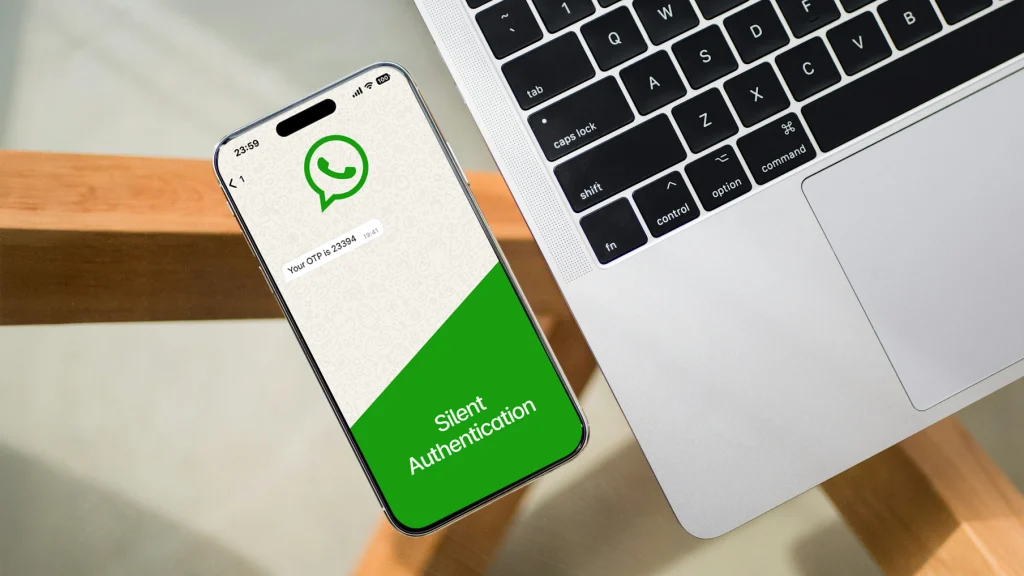Age verification and assurance with evolving regulations everywhere is becoming an important opportunity for Mobile Identity. Mobile Identity based on Telco data provides a comprehensive framework for proving your digital identity with privacy by design and security. This article focuses on age verification (the process that helps services confirm a user’s age to comply with regulations and protect vulnerable groups) and the key role MNOs can play in its implementation. For a deeper understanding of mobile identity, the GSMA and GTC have collaborated to produce a detailed white paper on mobile identity, available for free download.

Growing Global Regulations on Age Verification
Governments worldwide are increasingly mandating age verification for accessing age-restricted content and services. In the United Kingdom, the Online Safety Act 2023 enforces legal requirements starting July 2025, requiring websites hosting adult or sensitive content to perform reliable age verification using government-issued IDs or trusted third-party services. Ofcom, the UK’s regulator, further explains that simple self-declaration or ticking a box is no longer adequate under these rules to protect minors from harmful content online (Ofcom guide).
This marks a significant shift in how digital services must authenticate users’ ages, with penalties for non-compliance reaching up to 10% of global turnover. The UK government is also pioneering the acceptance of certified digital identification for age verification in physical venues like pubs and shops, aiming to improve convenience while maintaining strong security (UK Digital ID law announcement, Digital ID legalization).
Elsewhere, other countries such as the United States (with states like Texas passing regulations), Australia, Indonesia, and across the European Union, have introduced or are advancing similar frameworks, driven by concerns over minors’ access to socially and digitally harmful content including social media, gambling, and AI-driven platforms.
This global trend highlights the imperative for robust, privacy-conscious age verification mechanisms to ensure compliant service access and online safety. For example, Australian regulators have recently implemented strict age verification requirements for certain online gambling services, aiming to reduce underage activity.
Quick Overview of How Age Verification Works
At its core, age verification confirms if a user meets a minimum age requirement to access certain services. This process must be privacy-conscious—aiming to minimize exposure of personal details beyond the essential assertion of age eligibility.
The EU’s approach, for example, restricts data sharing to only what is necessary, employing pseudonymization to replace personal identifiers with tokens or hashed data that can be reversed only under strict circumstances, such as dispute resolutions. Strong privacy safeguards ensure that sensitive information, like biometric data or health details, remain protected and not misused beyond their intended purpose.
Key Methods of Age Verification
Several methods exist to verify age:
- Government-Issued Credentials: National IDs, passports, and other official documents remain the gold standard but require users to upload sensitive data to third parties, raising privacy and security concerns.
- Third-Party Verification via Telecom Operators: Mobile Network Operators (MNOs) can confirm user age through their existing customer relationships and billing data, without requiring direct sharing of IDs by the user. This method leverages secure network APIs that provide a privacy-preserving verification token, answering “Yes” or “No” to age queries without exposing underlying data.
- Biometric Approaches: Facial recognition and other biometric tools attempt to estimate age but are probabilistic and less reliable, with considerable privacy implications due to handling of biometric data.
- Tokenization and Blockchain Models: Emerging technologies propose allowing users to hold cryptographically secured digital identities, proving age via tokens without revealing personal data. While promising, these models still depend on authoritative data sources for initial verification.
Why Mobile Network Operator-Based Solutions Stand Out
MNOs have unique advantages in age verification. Their coverage spans large portions of national populations, enabling a broad reach. They operate under strict regulatory frameworks such as GDPR and telecommunications laws, which mandate robust privacy and security controls. Their network APIs deliver seamless and frictionless age verification by issuing cryptographically secured tokens that protect user identity. Frequent age checks for repeated service access create direct monetization opportunities for MNOs, incentivizing investment in these solutions.
Unlocking New Value for Operators with Mobile Identity and Age Verification
For Mobile Network Operators (MNOs), adopting mobile identity is not just about compliance or security, it’s also a compelling business opportunity. Age verification, as a core use case within mobile identity, offers operators distinct advantages beyond enhancing consumer trust.
MNO Monetization Through Trusted Age Verification
Each time a digital service, app, or online platform requests an age verification check, the operator’s infrastructure plays a critical intermediary role. This exchange is typically governed by a transactional or service fee model. As regulatory pressures widen the scope and frequency of age checks—covering not just gambling and adult content, but increasingly social media, gaming, and other restricted services—the volume of such transactions grows rapidly.
- Transaction-Driven Revenue: Every time an age verification request is processed via MNO network APIs, operators earn a fee from service providers seeking compliance and user assurance. The recurring nature of these checks transforms identity verification into a steady and scalable revenue stream for MNOs.
- High Service Demand: With nearly ubiquitous mobile penetration and mounting regulations across jurisdictions, operators are perfectly positioned to deliver efficient, reliable, and compliant age verification at scale. This demand is set to increase as more verticals and platforms fall under verification requirements.
- Cross-Selling and Service Differentiation: By offering privacy-centric, frictionless authentication, MNOs can differentiate their consumer and enterprise services, bundling identity APIs with security, anti-fraud, or digital onboarding solutions.
Conclusion

Age verification is here to stay as a critical component of digital identity protection and regulatory compliance. Mobile identity technologies, particularly those operated by Mobile Network Operators, offer the most privacy-conscious, scalable, and user-friendly approach.
As the regulatory landscape tightens globally, embracing secure and frictionless age verification solutions benefits both service providers and end-users. For readers interested in a broader perspective on mobile identity, the GSMA and GTC’s comprehensive Mobile Identity whitepaper is a valuable resource to explore.
If you want to learn more about how to monetize age verification in your area, get in touch with a GTC expert here.
Any questions?
Global Telco Consult (GTC) is a trusted independent business messaging consultancy with deep domain knowledge in application-to-person (A2P) services. GTC provides tailor-made messaging strategies to enterprises, messaging service providers, operators and voice carriers. We have expertise in multiple messaging channels such as RCS, Viber, WhatsApp, Telegram and SMS for the wholesale and retail industry. Additionally, GTC offers Digital Identity and Fraud advisory services, aiding clients in navigating the complexities of digital identity verification and fraud prevention, while also providing Recruitment services, assisting businesses in acquiring top talent within the telecom and technology sectors.
GTC supports its customers from market strategy through service launch, running the operations and supporting sales and procurement. The company started in 2016 with a mission to guide operators and telcos to embrace new and exciting opportunities and make the most out of business messaging. For more information or industry insights, browse through our blog page or follow us on LinkedIn.



